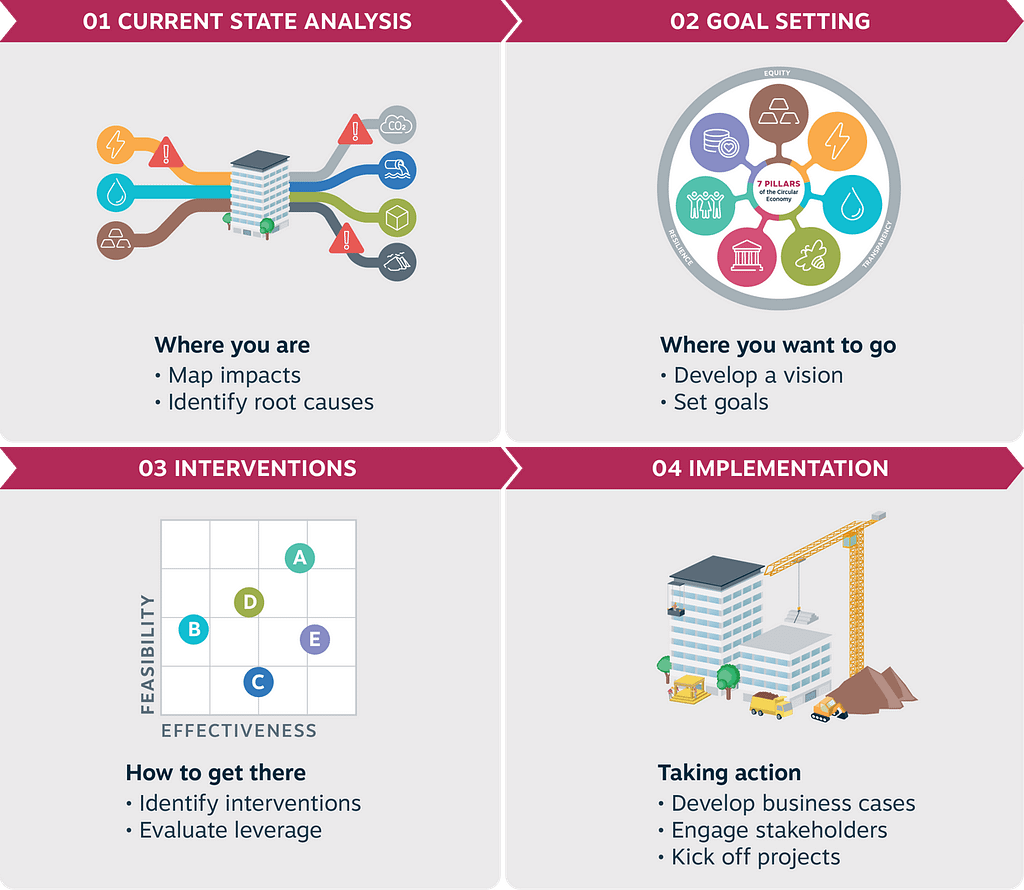We look for leverage points within systems to create maximum impact.
As an organization striving for systems change, we are working to transition the existing global economy as rapidly as possible by working with influential decision-makers to drive sustainability stewardship and organizational change. At the same time, we are working to build parallel systems based on principles that are fundamentally different to the current one, in the form of disruptive new ventures and pilots of new governance and finance models.
Learn more about the work of each of our entities here:
Using systems thinking to tackle complex sustainability challenges
The social and environmental problems resulting from our economic system can often feel independent from one another. At Metabolic, we take an integrated view of these issues – from climate change and biodiversity loss to human health and economic stagnation – acknowledging that many of these challenges are inextricably linked, and stem from a few key root causes.
We approach all of our work from a systems perspective. Mapping systems reveals leverage points: places in a system where one small change can create big changes across the entire system. These insights help us create impactful projects, in which we can put interventions into practice so they can scale up and generate results.

Six transitions
To accelerate global systems change, we must collectively re-imagine and re-design our systems and institutions. Metabolic’s focus is on six key transitions.
Cities and regions
The foundation of human habitats should be that they foster strong communities and the development of local, resilient, circular value chains. All human habitats should be built in line with sustainable, circular principles, fundamentally integrating natural elements that allow humans and other species to thrive and seamlessly connect with biodiverse hinterlands.
Food and Land-Use
A fully sustainable food system thrives within the planet’s boundaries, producing healthy food efficiently and accessibly, while supporting flourishing ecosystems. A dramatic reduction in food system footprints is necessary, while decarbonizing production, adopting circular management of key inputs, and fairly compensating those working within them.
Products and Services
All products should be designed, used, and disposed of in line with circular principles. It should no longer be possible to create products that are fundamentally linear or that wastefully allocate scarce resources in a way that only benefits a limited few. The full value chains of all goods and services should be fully decarbonized and optimized for material efficiency.
Finance
The financial system must transition to a different model that drives human effort and resource allocation towards the creation of holistically positive outcomes. Financial incentives should be adjusted to favor a much longer-term perspective, usury eliminated, and drastic inequalities structurally prevented. Human, natural, and social capital should be explicitly accounted for.
Governance
A shift in governance is required to create efficient, just, rapid, and informed decision-making to help progress human society toward a sustainable state. Governance systems should be inclusive, but also draw on the best available knowledge for decision-making. The control of governance systems should be distributed and not disproportionately benefit those with wealth or power.
Mindset
A shift is required in the values and mental models that underpin modern human society. People need to deeply understand our interconnectedness with and dependency on natural systems and prioritize a life of meaning (social connections, creative expression, philosophical exploration, immersion in nature) rather than the consumerism that currently dominates modern human lives.
